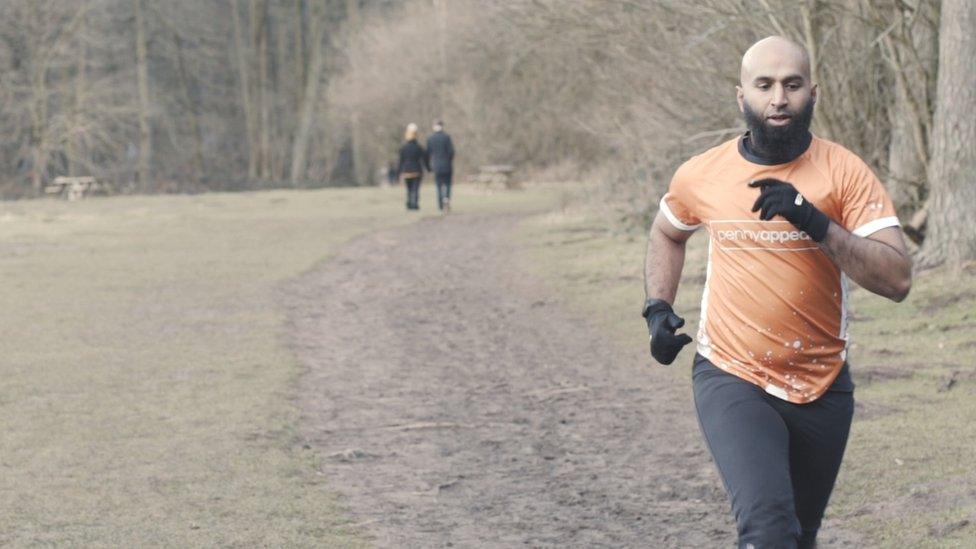Coronavirus: Eid celebrations during a pandemic
- Published
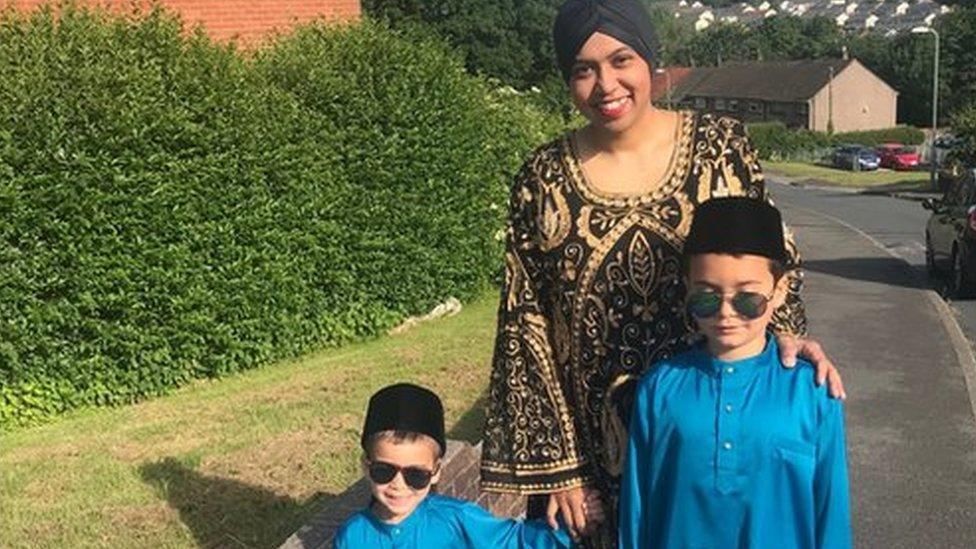
Shereen Williams with her sons, Selyf, 5 and Iesu, 10 in their Eid clothes
Eid won't be the same this year. No morning prayers at the mosque, no chance of meeting family and friends to celebrate Islam's most important festival.
Zara was planning on taking her family to the seaside, Shereen was looking forward to celebrating with her family in Singapore and Laura was anticipating a house filled with the sound of her young relatives' laughter.
Their dream Eid may not happen - but they're determined that breaking their month-long Ramadan fast for Eid al-Fitr will be as delicious as ever. They're planning a feast with their families.
Shereen Williams from Newport wasn't planning on cooking at all for Eid this year. She was due to take her two young sons Selyf and Iesu, with her husband Owain, to celebrate with her family in Singapore for the first time.
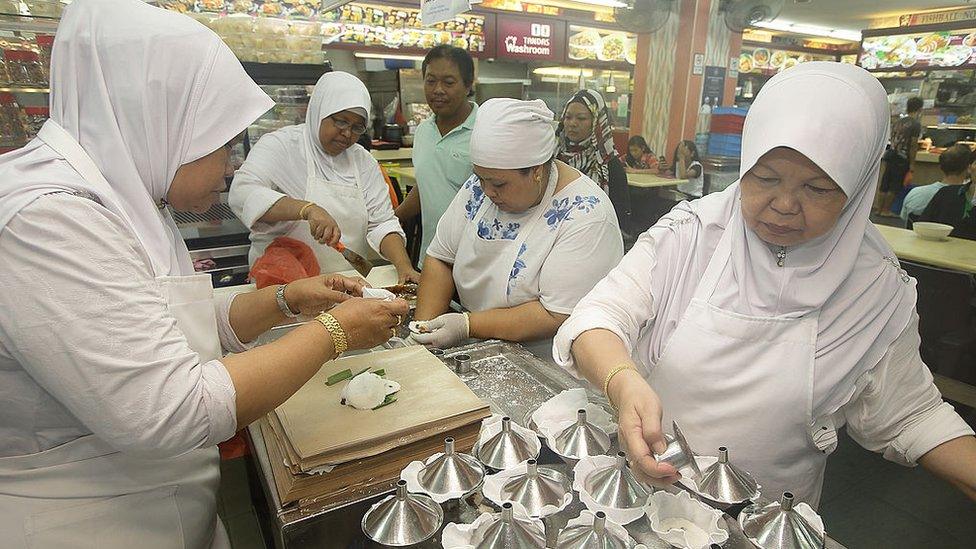
Shereen usually brings home treats for Eid from a shop like this one in Singapore
"I'm actually gutted we won't be there. I wouldn't have to do all this" she says, as she explains about all the treats she's preparing.
The big challenge will be re-creating the pineapple tarts she usually brings back from Singapore each year - Kuih tart.
"They're small tarts, very buttery, with pineapple jam in the centre. I'm determined to make them this year! God knows how it will work!"
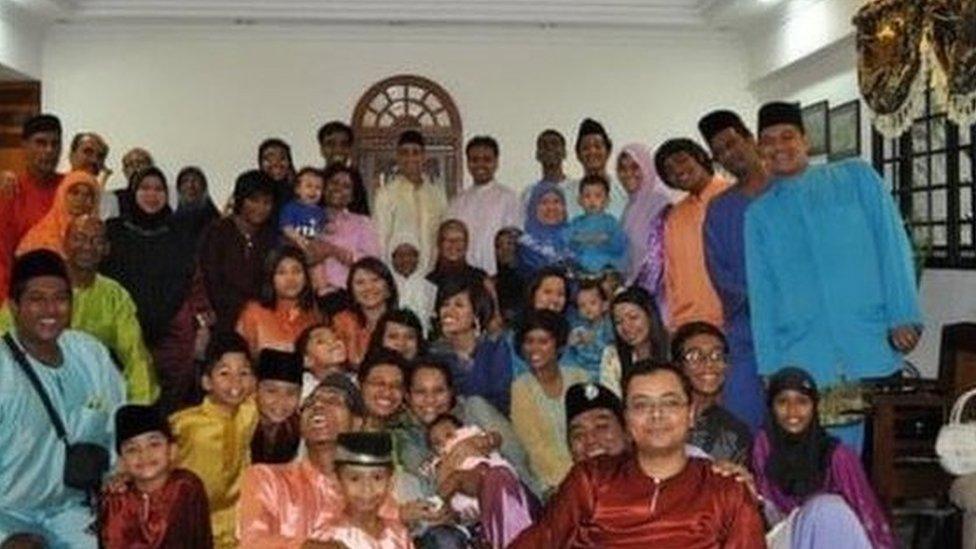
Shereen's family together for Eid in Singapore a few years ago
But there's so much more planned too. Usually, in Singapore, her family would cook a special meal ready to break the last fast of Ramadan with her relatives.
"We would get together at my grandmother's house, about 60 of us," says Shereen.
"My mother has nine siblings, so it was completely crazy. Three hours of chaos!
"My grandmother would cook for us, then we would go to other relatives' houses and then we would be expected to eat at everyone's houses.
"Imagine fasting for a whole month and then eating six meals in one day!"
In Newport, Eid is usually a bit different. Eid prayers at the mosque are usually a highlight first thing,
"Eid prayers are amazing, because everybody wears their traditional costumes," says Shereen.
"In Singapore people were all from the Malay community, so moving here and seeing people from all different backgrounds has been really nice."
After brunch with her husband's fellow Muslim converts, the main meal is usually in the evening.
Shereen is preparing chicken rendang this year, with her favourite side dishes, including ketupat rice cakes.
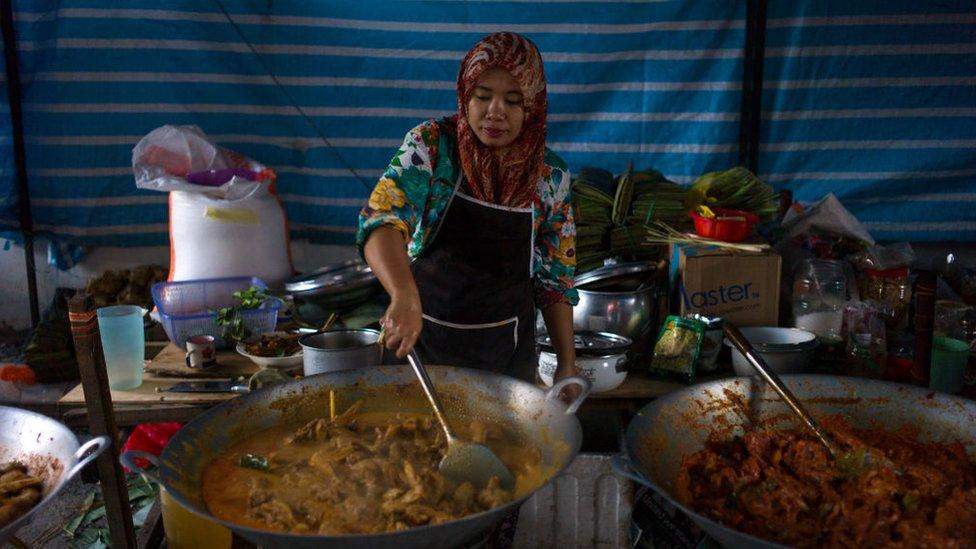
Preparing ayam rendang in Malaysia for Eid
"Traditionally you would use coconut leaves to be containers, but now we use plastic, and we boil them and then it's like a puffed-up cake," Shereen says.
"You cook beef or chicken rendang, we cook a spicy prawn and egg dish and it goes with rice cakes.
"There'll be a lot more prep work this year, because for me Eid isn't Eid without all those foods. In my family we show our love through giving each other food and receiving food.
"Obviously, the children are missing out on so many things at the moment. So it's more important than ever they get their little presents and the food they want to eat.
"And even if we'll be home, we will be wearing our Eid clothes!"
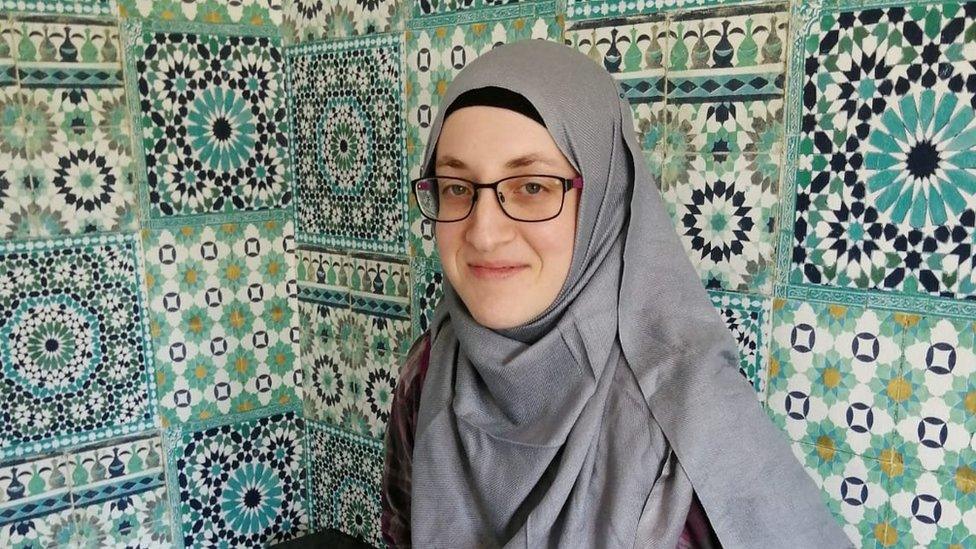
Laura Jones will bake a raspberry cake for Eid, the favourite of her one-year old son Jalal
Laura Jones from Mynachdy in Cardiff also feels it's important to celebrate this year.
"Ramadan and Eid don't stop for the coronavirus. It's important to celebrate," she says.
Throughout Ramadan, Laura has been presenting Welsh-language segments for Radio Ramhadan in Cardiff, and also took part in a multilingual video reminding fellow Muslims to stay at home during the holy month.
"It will be weird this year because we won't be able to see our relatives," Laura says.
"Usually, it's very noisy with all the children together. It will be quiet this year."
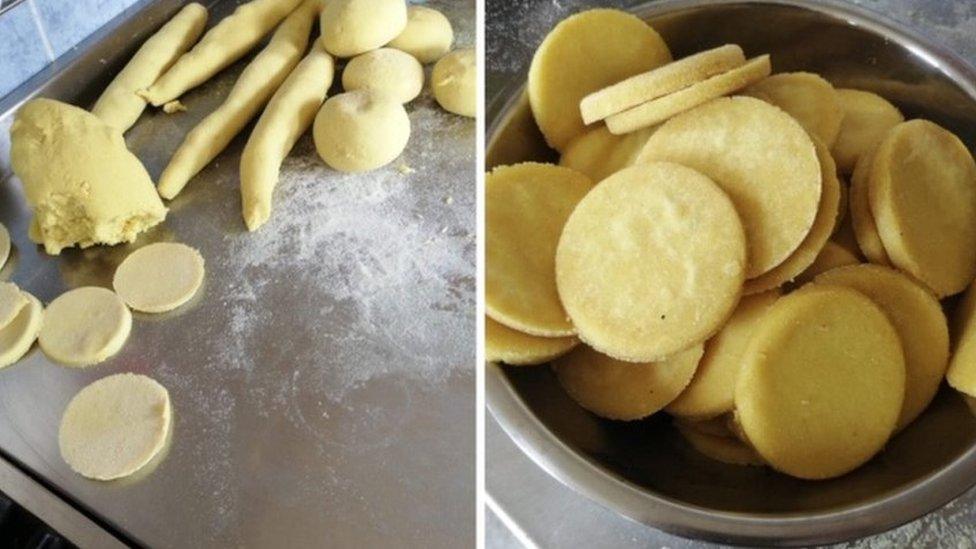
Bora - in preparation and afterwards
Despite that, Laura's parents-in-law are still planning a feast. They're planning on plenty of fried snacks, popular in Bangladesh.
Laura is looking forward to bora, a savoury snack made out of ground rice with added ginger, garlic and turmeric.
Handesh is similar and also popular in Bengal, but flavoured with sugar and date molasses instead.
"The dough is wetter and they fry them, " says Laura.
The main meal will probably be curry with rice - pilau and biryani.
"There'll be samosas too - savoury and sweet ones", says Laura.
"Usually lots of people come to the house for Eid. There won't be visitors this year, but the tradition will continue."
New traditions
Over in the Grangetown area of Cardiff, Zara Ali lives with her four children and her husband Mos.
She'll be cooking for Eid this year and she likes to follow the traditions of her African-Indian mother's family.
"Eid food varies between cultures, but in our culture we usually eat a lot of heavy foods, like biryani or fried snacks," Zara says.
"There's always a large selection of sweets. We tend to bake a lot of biscuits for the buffet."
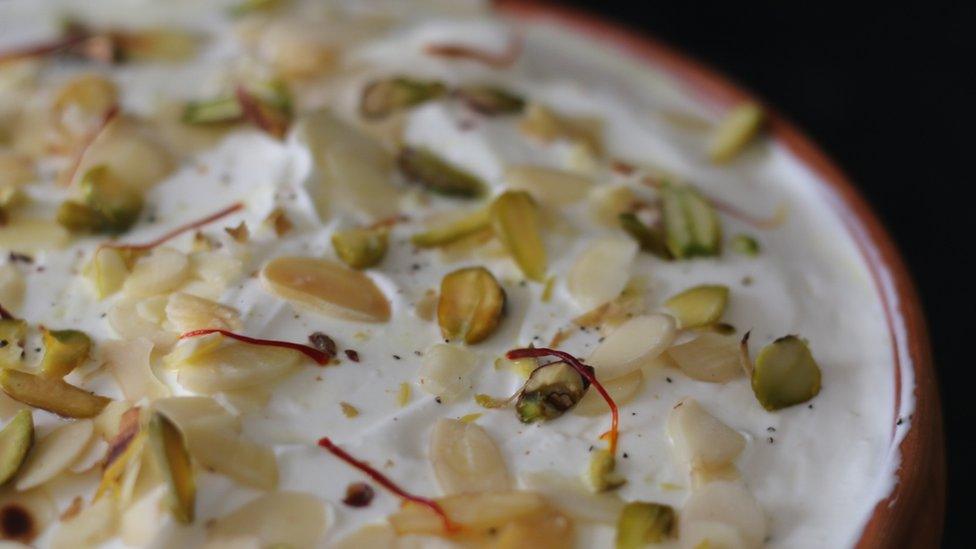
Sevaya, made with vermicelli, sweetened milk, pistachio and almonds
One very traditional dish is made from vermicelli in sweetened milk with cardamom, pistachio and almonds, called sevaya.
Zara adds: "We can't have Eid without a massive pot of biryani on the table.
"But my children and I have a new tradition now of introducing something new - like a cheesecake or stuffed cookies. We'll be doing that again this year."
Usually, the family take a trip to the seaside as part of their celebrations, over to Ogmore or Newton beach near Porthcawl. They usually take a packet of sausages with them and have a barbecue on the beach.
"We won't be doing that this year, which will be odd. We'll have to stay home and play games in the house," says Zara.
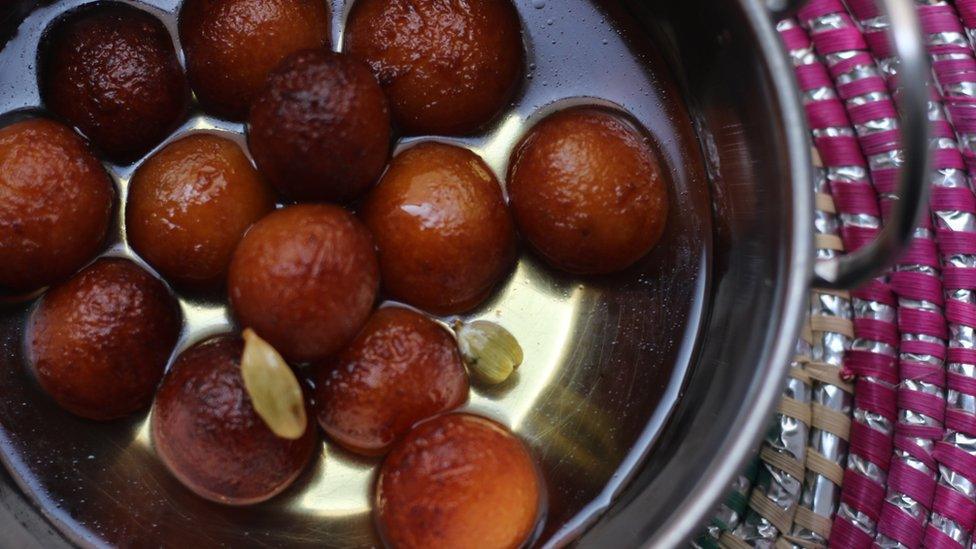
Gulab jamun - balls made from powdered milk in cardamom saffron syrup
But she is determined to celebrate.
"I feel very thankful to be home with my family and that we're all safe, happy and healthy," she says.
"My extended family are over in Cambridgeshire and Lancashire - I'll Facetime them.
"It's very important for me and my family to stay home right now. We're so appreciative of what we do have and of how lucky we are."
- Published25 May 2020
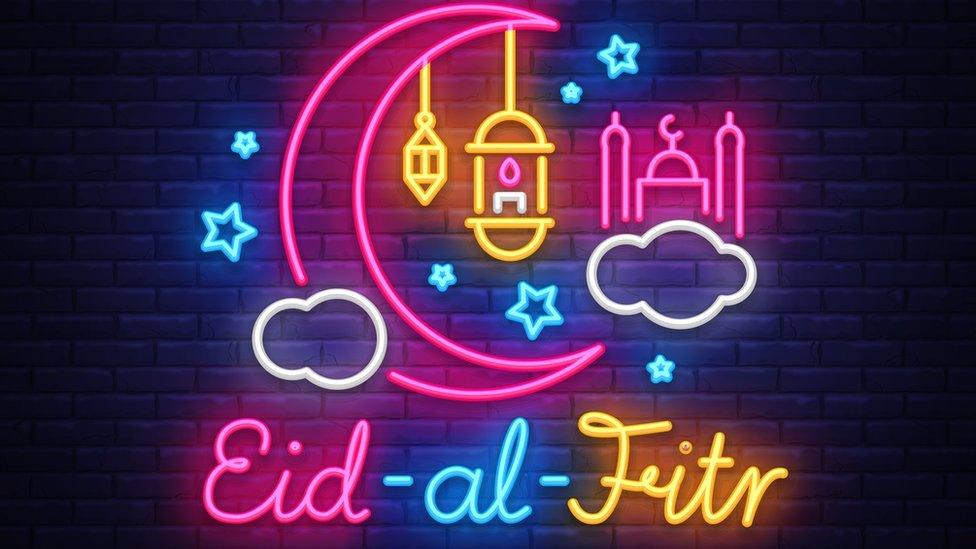
- Published22 May 2020
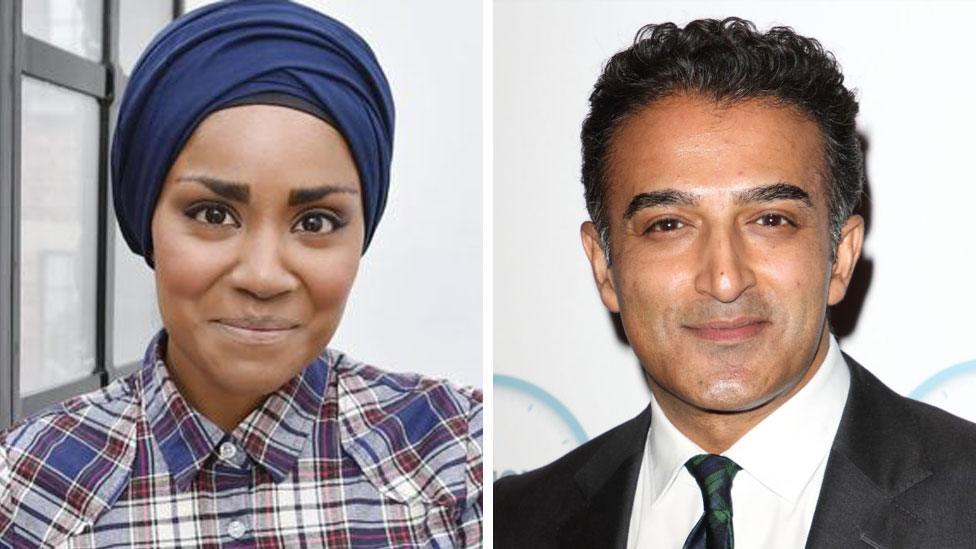
- Published15 May 2020
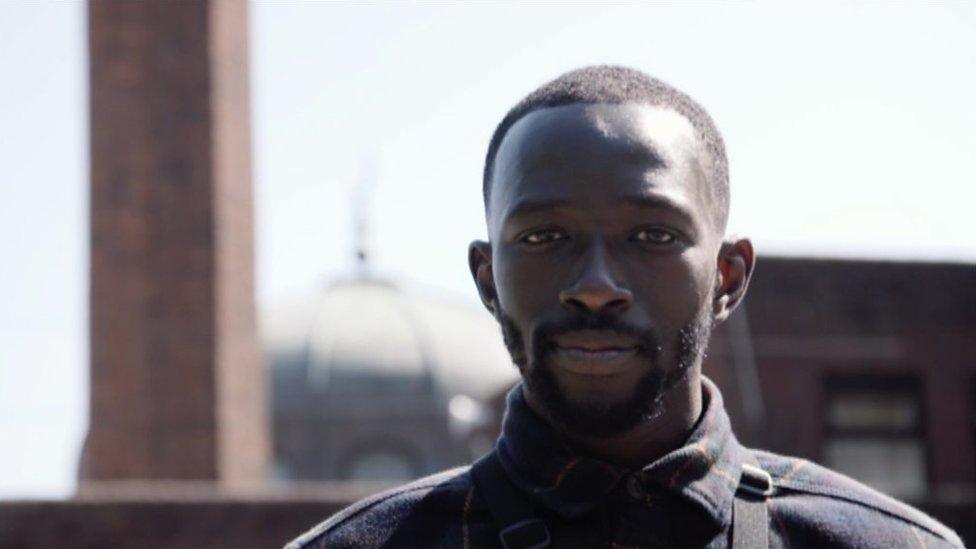
- Published14 May 2020
